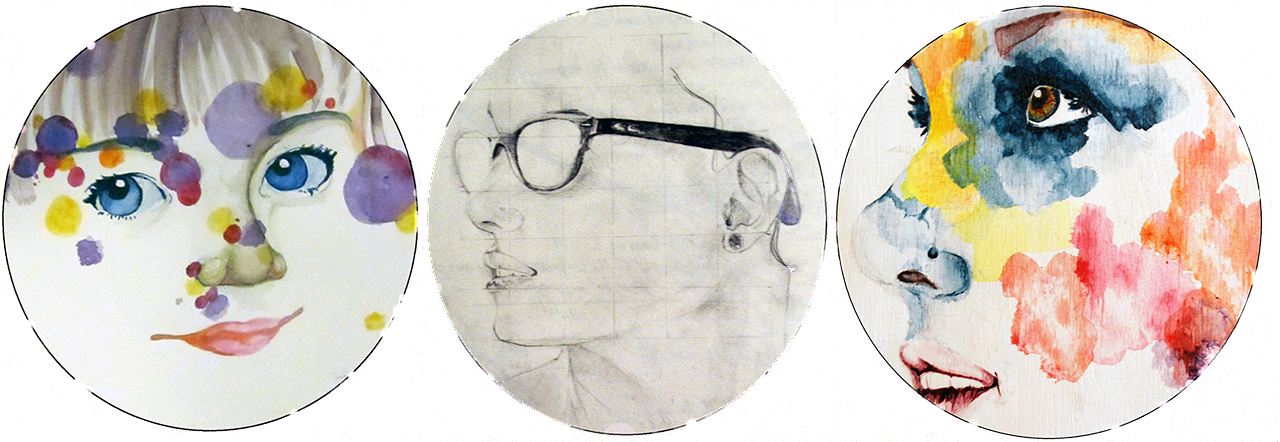Below is the course calendar and the reading schedule for the course. For class-specific resources and expanded descriptions of each class, look at the specific page for the class you are working on. Sometimes you will have to go to the class-specific page in preparation for or during class. Here is the finalized syllabus for the course (office location will be discussed in class): 3610A F19 Syllabus Final
Class 1: September 9
New Media Literacies & Culture: Course Introduction and Syllabus Tour
Reading: “Voices for a New Vernacular: A Forum on Digital Storytelling – Interview with Henry Jenkins” from International Journal of
Communication, 11(2017). Forum 1061-1068. (First 4 pages)
Production 1: Website Power-up
Class 2: September 16
Rethinking Literacy
Reading: Brayboy, B.M.J., & Maughan, E. (2009). Indigenous knowledges and the story of the bean. Harvard Education Review, 79(1). 1-21.
Rowsell, J. & Walsh, M. (2011). Rethinking literacy education in new
times. Brock education, 21(1). (Short)
Production 2: New Media Literacies Reflection (Critical Essay)
Class 3: September 23
Putting Multimodality to Work & ‘Serious Play’ for (L2/ELL) Learning
Reading: Lotherington, H. & Jenson, J. (2011). Teaching multimodal &
digital literacy in L2 settings: New literacies, new basics, new pedagogies.
Annual Review of Applied Linguistics, 31, 226-246. (Read Closely)
Production 3: Serious Comics & (Dual Language) Graphic Texts
Class 4: September 30
Participatory Culture & (DIY) Media Production
Reading: Young, J. (2011). Pedagogies of Production: Investigating What
works for teaching media literacy. Research for Action
Foundation.
Jenkins, H. (2010). Confronting the Challenges of Participatory Culture:
Media Education for the 21st Century. The McArthur Foundation.
(Closely Read Intro to page 37)
Production 4: Media Production
Class 5: October 7
Transforming School Cultures: Inquiry-Driven Learning with ‘New Media Literacies’
Reading: Thumlert, K., Owston, R. & Mulhotra, T. (2018). Transforming school culture through inquiry-driven learning and iPads. Journal of
Professional Capital and Community, 3(2). 79-96.
Ministry of Ontario Capacity Building Series. (2013). Inquiry-Based Learning.
Access at: www.edu.gov.on.ca/eng/literacynumeracy/inspire/research/
CBS_InquiryBased.pdf
Production 5: Connecting Inquiry-based Learning with Multiliteracies (Wikimedia)
READING WEEK
Class 6: October 21
Reading: Reading: Low, B., Brushwood Rose, C., & Salvio, P.M. (2017).
“Are You Listening?” from Community-based Media Pedagogies:
Relational Practices of Listening in the Commons. New York: Routledge.
1-15.
Mapping Memories: Explore the resources, videos, and digital stories on the Mapping Memories site. Pick one and make notes in a format of your choice, thinking about the video in relation to the reading for this week and readings so far in the course (see chapter 5 in the above text for a detailed look at this project).
Production 6: Creating and Sharing Stories in/of Education (Wikimedia/Transmedia)
Class 7: October 28
Learning through Game Making & Critical Game Design: Telling Digital Stories (Guest: Dr. Kurt Thumlert)
Reading: Skains, R.L. (2019). Teaching digital fiction: Integrating experimental writing and current technologies. Palgrave Communications, 5(13). 1-10.
Thumlert, K., de Castell, S., & Jenson, J. (2018). Learning through game design: A production pedagogy. The 2018 European Conference on Games
Based Learning Book: ACPI Press. (Short)
Watch: Abtec, Montreal Indigenous Futures Video Game Design Project
Watch: Jennifer Jenson, UBC: Learning through Game Design
Production 7: Using Twine for New Literacies, Game Design & Simulation/Modelling
Class 8: November 4
Games and Learning
Reading: Gee, J.P. (2007). Are Video Games Good for Learning? In Worlds in Play: International Perspectives on Digital Game Research. New York (short, but read closely).
Marone, V. (2016). Playful Constructivism: Making Sense of Digital Games for Learning and Creativity Through Play, Design, and Participation. Journal of Virtual Worlds Research, 9(3).
All productions due by this date if you wish to receive feedback on your ‘course portfolio.’
Class 9: November 11
Revisiting Multiliteracies / In-class Final Project Work
Reading: The New London Group. (1996). A pedagogy of multiliteracies:
Designing social futures. Harvard Educational Review. Access at:
http://www.sfu.ca/~decaste/newlondon.htm
First half: Since The New London Group wrote of multiliteracies in 1996, how has the educational system responded? In your groups, work through the article and consider how contexts and approaches have changed. Does this framework need to be updated to address new issues? How? What readings/concepts from the course help you think about ways this topic has been approached/how it could be updated to speak to our world today?
Resource: Cope, B. & Kalantzis, M. (2009). ‘Multiliteracies’: New literacies, new learning. Pedagogies: An International Journal, 4(3). 164-195.
Second half: In-class Final Project Work
All productions due today for your ‘course portfolio’ assignment if you only want a grade, with no feedback.
Class 10: November 18
No Class Meeting/Final Project Work
No class this week to give time for you to work on your group final projects.
Instructor Available by email, Skype, Zoom (for group project meetings if you need support).
Class 11: November 25
Digital Ethics, Critical Media Literacies and Everyday Life (in Complex Times)
Luke, A. (2018). Digital Ethics Now. Language and Literacy, 20(3). (Short)
“The educational challenge raised by digital culture is not one of skill or technological competence, but one of participation and ethics”…
Second half of class: Working on Projects & Presentations
Class 12: December 2
Final Day Project Presentations (Works in Progress Presentations)
Your group will present your final project to the class as a ‘work in progress,’ discussing process, what still has to be done, your thinking behind the project, and any other interesting challenges/tensions you are still working through.
Final projects due by/on Monday, December 9th (or earlier)
